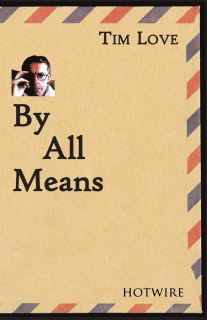 In What You Might Lose By Becoming a Writer Carlo Gébler wrote that "When I read, whatever I read, I examine and analyze. This is partly in order to judge the artifact and rank it, but also, and perhaps mostly, I am doing this so that I can learn from it. ... This attitude applies not just to books but to everything". Amongst the follow-ups were
In What You Might Lose By Becoming a Writer Carlo Gébler wrote that "When I read, whatever I read, I examine and analyze. This is partly in order to judge the artifact and rank it, but also, and perhaps mostly, I am doing this so that I can learn from it. ... This attitude applies not just to books but to everything". Amongst the follow-ups were
- Tania Hershman - "I know I read short stories with half an eye out for the how of it, how and why what works works, so I can learn from it. But then I do that with novels, with TV programs (how does that character seem so real?) and other fictional universes"
- Vanessa Gebbie - "it now takes a very good book to make me fall into the fictive dream we aim to create!"
At workshops I listen that way, and that's how I often read stories too, at least in part. Sometimes when I write I cater for readers unwilling to suspend disbelief (e.g. Method of Loci). Expanding the borders of the story might keep such readers inside the text rather than them observing it from the outside. The disadvantage is that the extra authorial or metafictional voice will distract the disbelief-suspenders.
Metafiction gets a bad press, but rather than being viewed as pretentious or academic, it can be thought of as a fun way to keep the attention of anticipatory readers. I think readers are more familiar with meta-fiction techniques nowadays, because they see them used elsewhere. The stage magicians Penn and Teller sometimes discuss techniques and use transparent props (in order to spring a further surprise later). Movies often have associated soundtracks or documentaries that recount how they were made. Sometimes it's possible to slip some metafiction into a story without upsetting those readers who want to be immersed - one of the characters can be a writer for example, agonising over the writing of a story that turns out to be the current story.
 My story collection "By All Means" (ISBN 978-0-9570984-9-7), published by Nine Arches Press, is on sale from
My story collection "By All Means" (ISBN 978-0-9570984-9-7), published by Nine Arches Press, is on sale from  My poetry pamphlet "Moving Parts" (ISBN 978-1-905939-59-6) is out now, on sale at the
My poetry pamphlet "Moving Parts" (ISBN 978-1-905939-59-6) is out now, on sale at the 
No comments:
Post a Comment